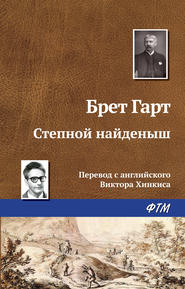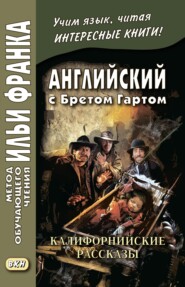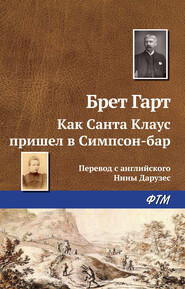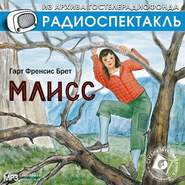По всем вопросам обращайтесь на: info@litportal.ru
(©) 2003-2025.
✖
Gabriel Conroy
Автор
Год написания книги
2017
Настройки чтения
Размер шрифта
Высота строк
Поля
"Fool. Don't you see" —
"What?"
"It was a baked potato."
Dumphy sat dumfounded.
"Why should they rub it? It takes off the cracklin' skins," he said.
"They've got such fine stomachs!" answered Mrs. Bracket, with an oath.
Dumphy was still aghast with the importance of his discovery.
"He said he knew where there was more!" he whispered eagerly.
"Where?"
"I didn't get to hear."
"Fool! Why didn't ye rush in and grip his throat until he told yer?" hissed Mrs. Brackett, in a tempest of baffled rage and disappointment. "Ye ain't got the spunk of a flea. Let me get hold of that gal – Hush! what's that?"
"He's moving!" said Dumphy.
In an instant they had both changed again into slinking, crouching, baffled animals, eager only for escape. Yet they dared not move.
The old man had turned over, and his lips were moving in the mutterings of delirium. Presently he called "Grace!"
With a sign of caution to her companion, the woman leaned over him.
"Yes, deary, I'm here."
"Tell him not to forget. Make him keep his promise. Ask him where it is buried!"
"Yes, deary!"
"He'll tell you. He knows!"
"Yes, deary!"
"At the head of Monument Cañon. A hundred feet north of the lone pine. Dig two feet down below the surface of the cairn."
"Yes!"
"Where the wolves can't get it."
"Yes!"
"The stones keep it from ravenous beasts."
"Yes, in course."
"That might tear it up."
"Yes!"
"Starving beasts!"
"Yes, deary!"
The fire of his wandering eyes went out suddenly, like a candle; his jaw dropped; he was dead. And over him the man and woman crouched in fearful joy, looking at each other with the first smile that had been upon their lips since they had entered the fateful cañon.
CHAPTER III.
GABRIEL
It was found the next morning that the party was diminished by five. Philip Ashley and Grace Conroy, Peter Dumphy and Mrs. Brackett, were missing; Dr. Paul Devarges was dead. The death of the old man caused but little excitement and no sorrow; the absconding of the others was attributed to some information which they had selfishly withheld from the remaining ones, and produced a spasm of impotent rage. In five minutes their fury knew no bounds. The lives and property of the fugitives were instantly declared forfeit. Steps were taken – about twenty, I think – in the direction of their flight, but finally abandoned.
Only one person knew that Philip and Grace had gone together – Gabriel Conroy. On awakening early that morning he had found pinned to his blanket a paper with these words in pencil —
"God bless dear brother and sister, and keep them until Philip and I come back with help."
With it were a few scraps of provisions, evidently saved by Grace from her scant rations, and left as a parting gift. These Gabriel instantly turned into the common stock. Then he began to comfort the child. Added to his natural hopefulness, he had a sympathetic instinct with the pains and penalties of childhood, not so much a quality of his intellect as of his nature. He had all the physical adaptabilities of a nurse – a large, tender touch, a low persuasive voice, pliant yet unhesitating limbs, and broad, well-cushioned surfaces. During the weary journey women had instinctively entrusted babies to his charge; most of the dead had died in his arms; all forms and conditions of helplessness had availed themselves of his easy capacity. No one thought of thanking him. I do not think he ever expected it; he always appeared morally irresponsible and quite unconscious of his own importance, and, as is frequent in such cases, there was a tendency to accept his services at his own valuation. Nay more, there was a slight consciousness of superiority in those who thus gave him an opportunity of exhibiting his special faculty.
"Olly," he said, after an airy preliminary toss, "would ye like to have a nice dolly?"
Olly opened her wide hungry eyes in hopeful anticipation and nodded assent.
"A nice dolly, with real mamma," he continued, "who plays with it like a true baby. Would ye like to help her play with it?"
The idea of a joint partnership of this kind evidently pleased Olly by its novelty.
"Well then, brother Gabe will get you one. But Gracie will have to go away, so that the doll's mamma kin come."
Olly at first resented this, but eventually succumbed to novelty, after the fashion of her sex, starving or otherwise. Yet she prudently asked —
"Is it ever hungry?"
"It is never hungry," replied Gabriel, confidently.
"Oh!" said Olly, with an air of relief.
Then Gabriel, the cunning, sought Mrs. Dumphy, the mentally alienated.
"You are jest killin' of yourself with the tendin' o' that child," he said, after bestowing a caress on the blanket and slightly pinching an imaginary cheek of the effigy. "It would be likelier and stronger fur a playmate. Good gracious! how thin it is gettin'. A change will do it good; fetch it to Olly, and let her help you to tend it until – until – to-morrow." To-morrow was the extreme limit of Mrs. Dumphy's future.
So Mrs. Dumphy and her effigy were installed in Gracie's place, and Olly was made happy. A finer nature or a more active imagination than Gabriel's would have revolted at this monstrous combination; but Gabriel only saw that they appeared contented, and the first pressing difficulty of Gracie's absence was overcome. So alternately they took care of the effigy, the child simulating the cares of the future and losing the present in them, the mother living in the memories of the past. Perhaps it might have been pathetic to have seen Olly and Mrs. Dumphy both saving the infinitesimal remnants of their provisions for the doll, but the only spectator was one of the actors, Gabriel, who lent himself to the deception; and pathos, to be effective, must be viewed from the outside.
At noon that day the hysterical young man, Gabriel's cousin, died. Gabriel went over to the other hut and endeavoured to cheer the survivors. He succeeded in infecting them so far with his hopefulness as to loosen the tongue and imagination of the story-teller, but at four o'clock the body had not yet been buried. It was evening, and the three were sitting over the embers, when a singular change came over Mrs. Dumphy. The effigy suddenly slipped from her hands, and looking up, Gabriel perceived that her arms had dropped to her side, and that her eyes were fixed on vacancy. He spoke to her, but she made no sign nor response of any kind. He touched her and found her limbs rigid and motionless. Olly began to cry.

















